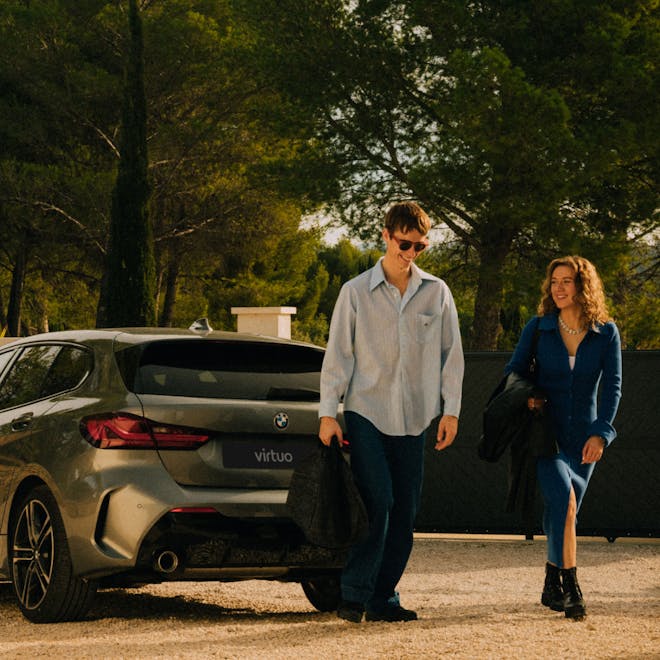Shared mobility revolution is fuelling a decline in car ownership
Cities are changing at a pace never seen before and with a change in structure and behaviour, there has been a meteoric rise in ‘shared mobility’. Technological advances have paved the way for a shared mobility market that completely rethinks the way city dwellers move and interact both in and out of a city. With so many alternatives to traditional travel, city inhabitants are turning away from car ownership, especially the younger generations. Below we look at how the shared mobility revolution is fuelling this decline.
The Primed Generation
In a world of Amazon prime, we are conditioned for immediacy, convenience and on-demand services. Everything you need, from food to handymen, all the way down to a car is all just a few clicks away. Technology has changed the way we interact, move, shop and even sleep these days and is the driving force behind the expected rapid rise of shared mobility.
As of 2016, just 4% of miles driven were shared, within in the next 15 years, this figure is expected to surpass 500% growth(morgan stanley). Shared mobility has become an umbrella term for all kinds of shared transport services; from car-sharing and ride-hailing to bicycle schemes and electric scooters, companies are innovating the transport scene and giving consumers more choice when it comes to their commutes or holidays.
Extra urban mobility services such as mobile-only car rentals provide alternative travel solutions to residents who don’t want to or cannot afford the costs of purchasing and maintaining their own private vehicle; these services are quick, easy and convenient and can often be cheaper than long-journey train tickets too. Light transport vehicles such as bikes and scooters are also becoming increasingly popular in helping with the first- and last-mile connections for commuters, who would previously have used cars to travel to and from Tube, train and bus stations. In addition, ride-hailing apps allow residents to travel at their own convenience and cost, often in areas where public transport is lacking. As more people become open to using these shared mobility options, they no longer have to rely on their own personal vehicles.
Changing Attitudes
Convenience and cost are becoming top priorities for many when considering travel options in cities, and owning cars no longer fits into these categories due to the maintenance costs, insurance and the parking space required among other things. By prioritising our own individual travel needs, consumers are fuelling the desire for transport companies that disrupt traditional ownership and factor in people’s priorities.
Studies have shown that millennials and younger generations are buying fewer cars than their elders too. For many older generations, car ownership symbolises freedom and opportunity, while younger generations value affordability, convenience and instant access when it comes to travel.
With more and more young people flocking to cities for jobs and careers, many quickly discover that owning a car isn’t necessary for these areas. Public transport is a valuable travel resource, but shared mobility brands are making it easier than ever to pick a transport mode that suits young people’s own individual needs all at the touch of a smartphone. Many young people, burdened with loans and debts, are therefore turning away from car ownership and its associated costs.
Urbanisation and changing cities
Cities are changing at a pace in-line with the changing face of mobility, it is predicted that by 2050 ⅔ of the world’s population will live in cities compared to 50% today. With limited space and major congestion, many cities are also embracing the chance to cut down on the number of private cars being used by individuals by supporting shared services as alternatives. With new charges such as the Ultra Low Emission Zone (ULEZ) now in place in London, car owners are disincentivised to drive in the capital, and we may see a shift to a society where residents will only use cars on a needs-basis through services such as modern car rentals and ride-sharing.
In the UK, owned cars are parked 96.5% of the time. Through shared mobility, we can save space and benefit from newer more efficient cars that are regularly serviced. The fewer cars sat idle on the road, the better for our cities. We can also expect lots of change towards autonomous vehicles and roads. It has been predicted that by 2040 traffic lights may be eliminated and there will also be the introduction of autonomous car lanes.
Conclusion and our role
The sharing economy will continue to gather pace to efficiently move people around cities. When you consider that 78% of all trips in Europe between 100-800kms are done by car and that rail services are more and more disrupted there is a need for alternative solutions beyond just owning a car. At Virtuo, we are focused on longer-term/longer distance rentals rather than short hops around this city, this is a market that has been dominated by 5 key players for many years.
Car rental, which has long been synonymous with poor user experiences, needs fundamental change that builds on the on-demand nature of car-sharing services and takes the hassle out of long term car rental, this is exactly what we are looking to do at Virtuo.
For us, one of the most alarming areas is that cars are the most un-utilised asset on the planet. Driven an hour per day on average, they are used only 4% of the time, with 2.7% of that time on the move and the remaining 1.3% in traffic. It is for these reasons we are so motivated to provide a mobility solution that reduces the number of cars sit idle and is far more efficient.










